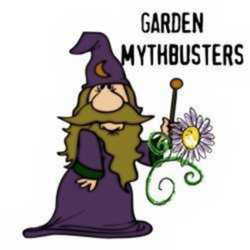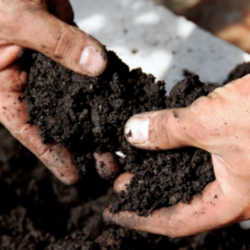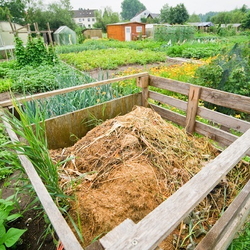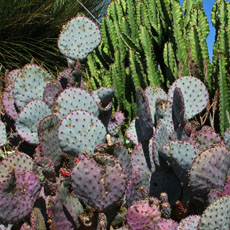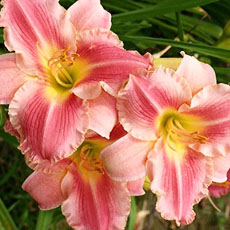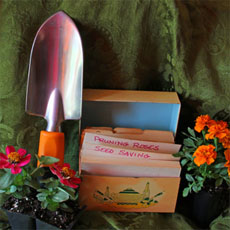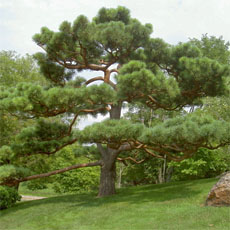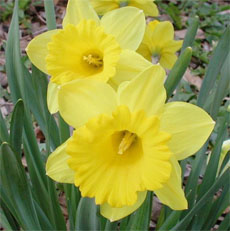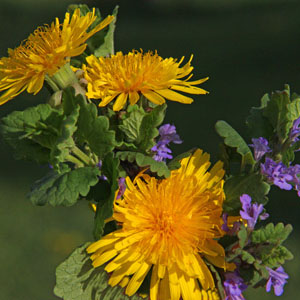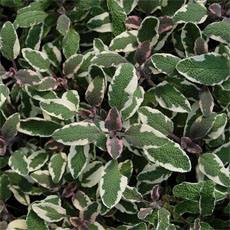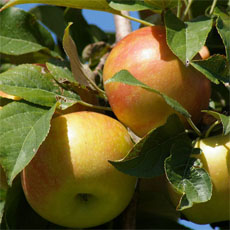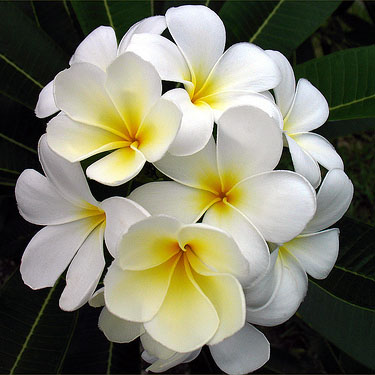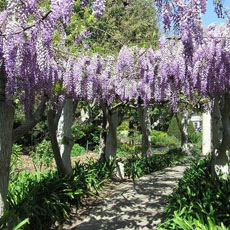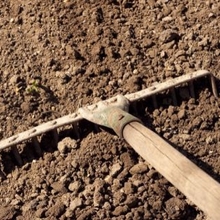I'm going to tell you straight off that the value of compost tea is a subject still debated. On one side are proponents of organic methods, and producers of compost and teas. They describe healthy, productive plots using only teas and organics, and can cite populations of beneficial microbes in the teas they produce. In opposition are agricultural scientists who point out the lack of reputable experiments, or cite valid studies that show no benefits from use of compost tea. Home gardeners have the luxury of choosing in whom to put their faith, and experimenting with their own teas and gardens...or not.
Bag-in-a-bucket compost tea was widely recommended with the revival of environmentally friendly gardening in the 1970s. The idea goes back decades, maybe centuries, farther than that. It's very low-tech. Put a shovelful of finished compost in a burlap sack, tie the sack closed, submerge in a large bucket (picture a giant and bizarrely filthy teabag) and let the stuff steep for days. Water soluble nutrients come out of the compost, and tiny organisms that reside in compost float out along with them. The water becomes a rich looking dark brown liquid. Dilute this liquid to a light brown, something like tea you would drink. Use it to drench around plants or spray on their leaves.
There must be something from the compost now present in the water. You can see it. Strict scientists and farmers alike agree that water soluble nutrients and many forms and species of microlife are found in fresh compost tea. The organics people have plenty of anecdotal evidence to support their use of compost tea. Compost tea for plants is regarded as analogous to the now common and respected probiotics for humans. The theory is that compost tea inoculates the soil and leaf surfaces with many "good" organisms, which then crowd out and compete with bad, disease causing ones.
But strict scientists want hard evidence. They urge, at best, a cautious embrace of compost tea in home gardens. Poorly made compost yields poor tea. Improperly handled compost tea can have low levels of good organisms. Controlled experiments are hard to manage on such a variable product. The current data on compost tea show limited success. The scientific view of compost tea is well presented in the publication "Compost tea: Examining the science behind the claims" by Dr. Linda Chalker-Smith.
As a home gardener, you can play with compost tea all you want, or not. If you want to experiment with compost tea, summer is a good time to do so. Mild weather makes it easier to manage this biologically active extract. And you can use compost tea as a (probable) gentle liquid fertilizer or soil booster without concern that it can burn like commercial fertilizer. The gardens and containers probably need to be watered anyway.
According to the National Sustainable Agriculture Information Service, and current compost technology, the method I described at the start is a "compost watery extract." Proponents of organic agriculture have worked with variations on the basic recipe. Aerated compost tea is considered a big step up in quality, and it is the industry standard for what is now marketed to consumers as "compost tea." The original recipe for compost tea is enhanced by the addition of a food source for good organisms, and more significantly by mechanically oxygenating the liquid. When done well, this method allows the microlife in the original sample to multiply manyfold. This allows the grower or gardener to effectively inoculate much more area than they could by spreading limited amounts of compost (according to compost tea advocates.).
At this point, decide. Should you forego compost tea until you read solid, overwhelming evidence, through controlled experiments, of major benefits from its use? Do you want controlled experiements that prove compost tea is more effective for disease control and plant growth than current inorganic methods and materials. Then you can skip the end of this article.
If you'd like to experiment with compost tea, read the rest, and then read more from links here and your own further reaserch. Be sure you're getting current information, not just some rehashed advice from the old bag-in-a-bucket days. Proponents of organic agriculture are working diligently to maximize the possible benefits of compost tea.
Notes on Compost Teas by Steve Diver gives an excellent, more in depth treatment of this subject. It also provides a wealth of links for further reading and help in setting up an aeration system.
Soil Foodweb Incorporated is a well respected authority in the microanalysis of the organisms in compost tea. Here's a link to Dr Elaine Ingram's basic instructions for aerated compost tea. If you have read about compost tea before, you'll be surprised that she advises against the use of molasses as a bacterial foodsource.
If you want to make your own compost extract or aerated tea, remember these critical points:
- Use only good quality well aged finished compost.
- Be extra cautious with compost tea on food crops. The dangerous pathogens E. coli and Salmonella have been documented in aerated compost tea.
- Aerated teas need vigorous aeration and a limited brew time, otherwise the tea "spoils" and the good organisms die off.
- Use unchlorinated water only.
- Do not use fresh manure, be cautious with manure composts which may contain E. coli unless effectively hot composted.
Resource links
Compost tea: Examining the science behind the myths, accessed 8-15-2014
http://puyallup.wsu.edu/~linda%20chalker-scott/Horticultural%20Myths_files/Myths/magazine%20pdfs/CompostTea.pdf
Compost Tea Basic Recipe from Soil Foodweb Incorporated, accessed 8-15-2014
http://www.soilfoodweb.com/Compost_Tea_Recipe.html
search tip: do a Google search for site:.edu "compost tea" to get search results limited to university sites and compost tea

